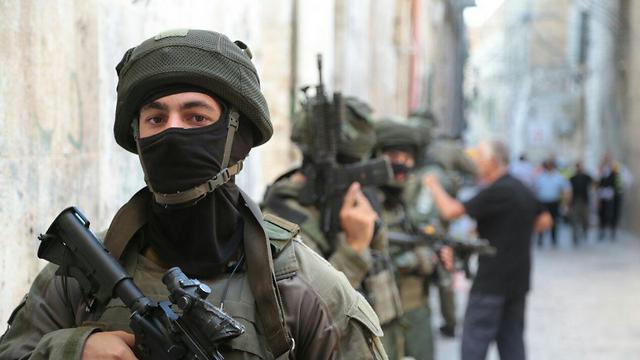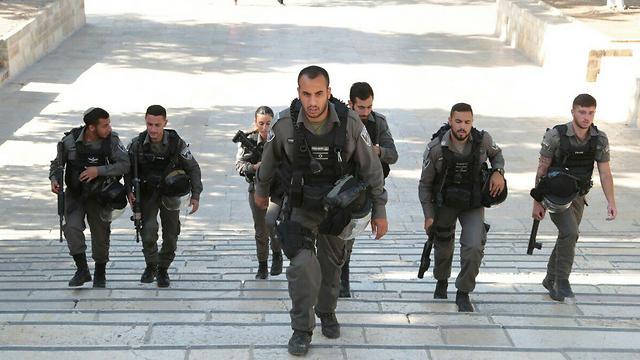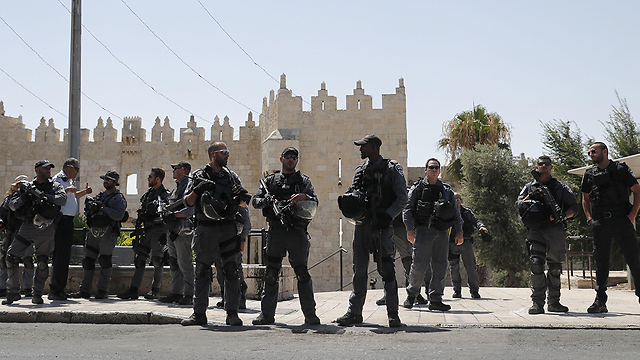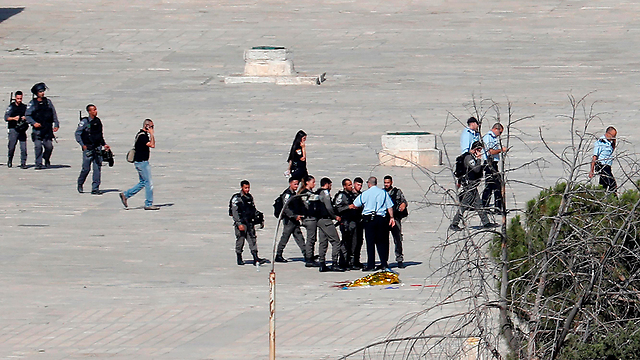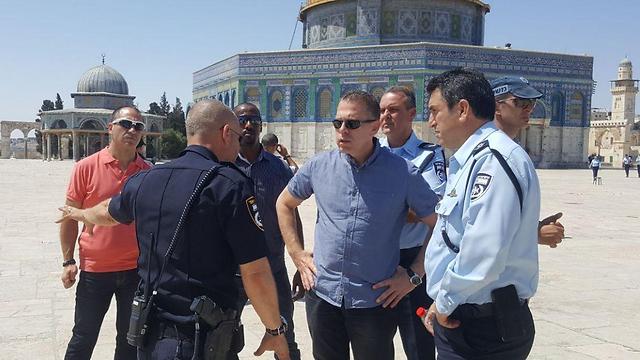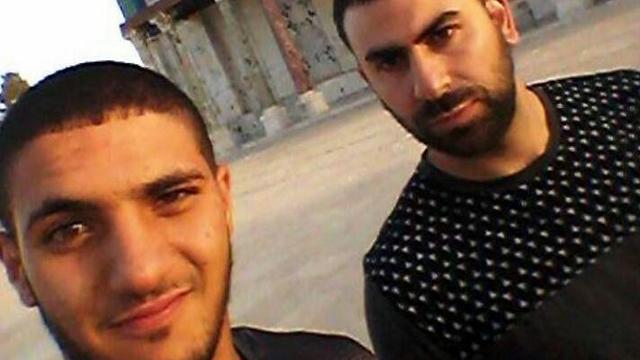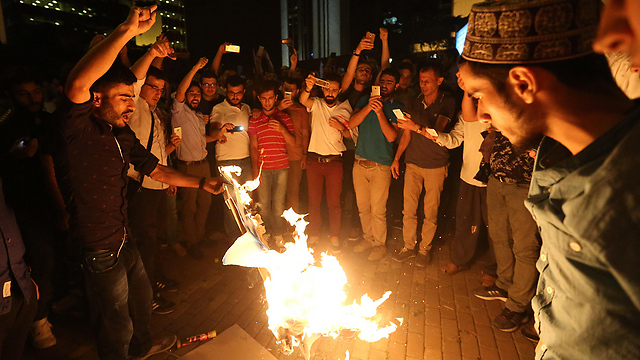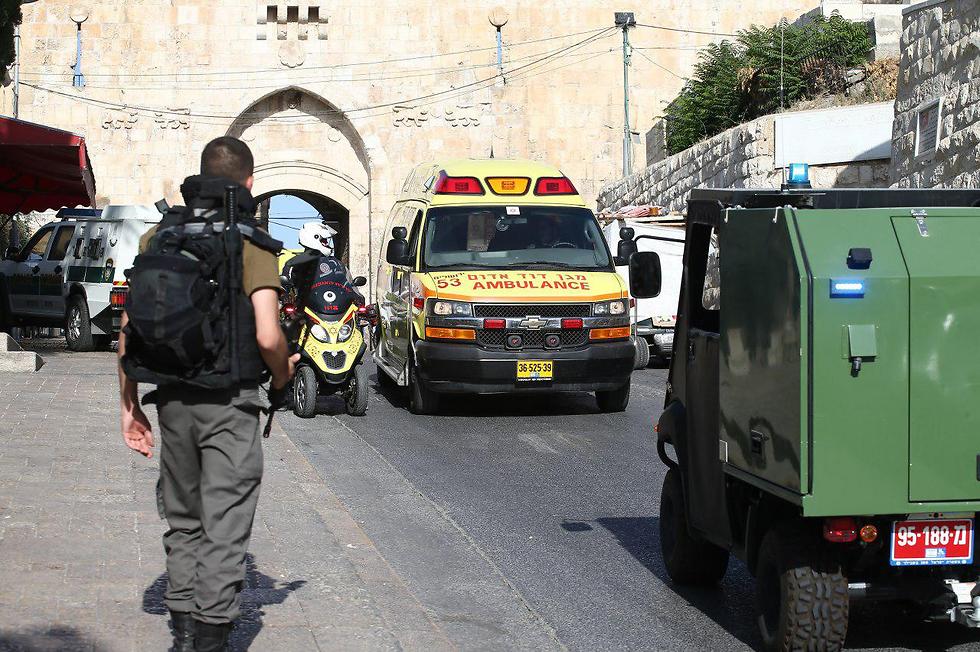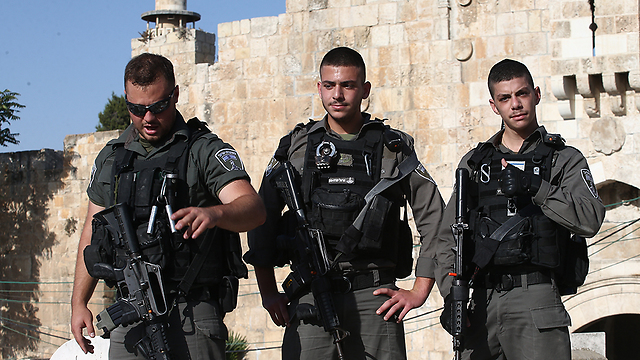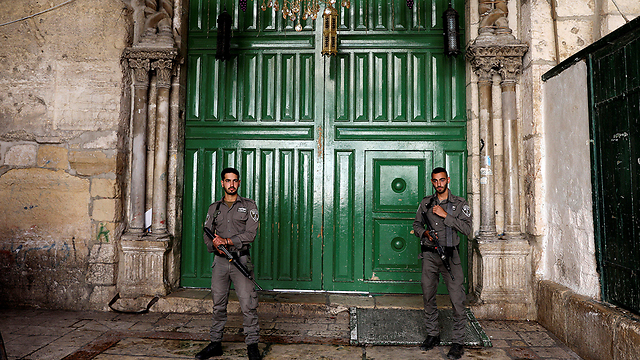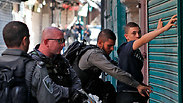
Temple Mount closure was the right thing to do
Analysis: Friday’s attack at the most religiously explosive place in the Middle East required Israel to act quickly. While closing the holy site for Muslim prayer was a risky move which could have sparked violent riots, it was necessary to prevent a major flare-up in the territories, in Israel and in the Muslim world in general
A thorough investigation is carried out only after these three stages are completed, in a bid to draw conclusions and be better prepared for the prevention of future attacks.
Friday’s attack in Jerusalem, which left Staff Sgt. Maj. Ha'il Satawi and Staff Sgt. Maj. Kamil Shnaan dead, had a religious motive and was carried out in the most religiously explosive place in the Middle East right now—the Temple Mount. It was therefore important to act quickly, not just to stop and neutralize the terrorists so they would not cause further deaths and damage, but also to prevent a major flare-up in the territories, in Israel and in the Muslim world in general.

And that was done, properly, by the security forces and the Israeli government. Closing the Temple Mount for Muslim prayers prevented incitement and violent rioting, which could have developed had the prayers been held as usual. Stopping the prayer at the Temple Mount was also necessary in order to conduct a thorough search in the compound and ensure there are no more weapons there or stockpiles of Molotov cocktails and stones, which Muslim worshipers sometimes use to target the Jews praying in the Western Wall beneath them.
The Shin Bet and Israel Police know very well that stopping the prayer at the Temple Mount could in itself spark violent riots among Muslims and inflame the situation, but they estimated that because the attack was carried out by Muslims who violated the Temple Mount’s sanctity, the response to the compound’s closure for prayer would not be so strong. This estimate was fully verified—for now, at least. The Palestinian and Israeli Arabs have been exercising restraint, which is likely the result of considerable feelings of guilt over the fact that the terrorists who operated in the holy site came from their ranks.
Closing Jerusalem’s Old City to traffic was necessary as well, to prevent friction between Muslims and Jews in the narrow alleys. This friction, after a Temple Mount attack and the killing of terrorists which was reported all over social media, would have almost certainly led to murder attempts and violent clashes. The solution was to neutralize the danger by turning the Old City into an almost sterile zone.
International damage largely averted
It's also important to keep in mind that if the Old City hadn’t been closed on Friday, the tourists who were planning to visit it would have been in serious danger. The Palestinians are arguing, of course, that the closure of the Old City and the Temple Mount were in fact punitive measures taken by the Israeli government, as east Jerusalem merchants suffered from the Old City’s closure. From personal knowledge, I can say this claim is false.
The third step taken by the Israeli government in commendable speed was to prevent an escalation of the situation in the Muslim world, which would have harmed Israel’s international standing. Prime Minister Benjamin Netanyahu’s declaration, following an evaluation of the situation, that the status quo at the Temple Mount would be preserved and that the prayers there would be resumed on Sunday, as well as the interview given by Major-General Yoav Mordechai, the coordinator of the government’s activities in the territories, were the right move at the right time. The comments made by Public Security Minister Gilad Erdan at the Temple Mount were also restrained and to the point, helping to ward off claims made by Arab elements, led by Jordan.
We shouldn't be surprised by Jordan and Qatar’s reactions to the events, as well as by the response of Hamas and Islamic Jihad, which condemned the Israeli raid of the Temple Mount. When it comes to the State of Israel, Arab politicians have always favored “alternative facts” over the truth. It serves them as a defense mechanism against the rage of their countries’ citizens. In Jordan, for example, the majority of the population is Palestinian and the Islamist movements are very strong.
Palestinian President Mahmoud Abbas, on the other hand, condemned the terror attack upon realizing an outburst of Palestinian violence as a result of incitement would harm him just as it would harm Israel. An escalation in the Middle East is in no one’s interest right now, and that was evident in the statement released by Turkey and Egypt, likely following Netanyahu’s calming message that the status quo would be maintained.
There are still some tensions in the Silwan neighborhood, and there were two attempted terror attacks near Atarot which were likely inspired by the Temple Mount events, but the Arab street in Israel and in east Jerusalem is quiet. The international damage has likely been largely averted as well, and Israel can keep claiming it is defending the holy sites better than all its predecessors and maintaining freedom of worship for all religions in that sensitive place.
Next stage: Long-term prevention and deterrence
In the 1990s, there was a massive terrorist attack in Islam’s holiest place—the Kaaba of Mecca. The Saudi security forces didn’t hesitate before shooting the terrorists, and even detonating explosive devices which destroyed part of the holy sire. The incident lasted several days, but the Muslim world kept quiet. The Arab League, and other Islamist elements that are attacking Israel right now, should be reminded of that incident.
The prevention and damage minimization stage of the Temple Mount attack is drawing to an end. On Sunday, Israel’s defense establishment will have to move to the next stage, which is a long-term prevention of additional attacks in this sensitive place. The measures that should be taken include scattering camera and metal detectors around the Temple Mount and at its entrances, as well as deterrence.
We should remember that Israel’s security forces—the IDF, the Shin Bet and the Israel Police—have been highly efficient in handling the wave of terrorism that began in September 2015. One of the causes of that wave of terrorism was the call on Jews to visit the Temple Mount.
The wave of lone-wolf terrorism was suppressed thanks to a proper policy led by the defense establishment, which aimed to distinguish between the terrorists and the population trying to live its life. Another reason was a creative and technological intelligence collection which made it possible to thwart these kinds of terror attacks. A third reason was the Palestinian security apparatus’ determination.
But even when the situation calmed down in late 2016, the Temple Mount kept producing terror attacks, mostly by “local cells” of Palestinians. Israel should consider not only better defense and screening measures at the Temple Mount gates, but also wider moves that would deter people from repeatedly trying to target the site.
In this context, it’s quite surprising that the leading inciter when it comes to the Temple Mount, Sheikh Raed Salah of the Islamic Movement’s northern branch, is still free to incite without any restrictions. It’s very possible that this sheikh holds imputed liability for Friday’s murderous attack at the Temple Mount.










